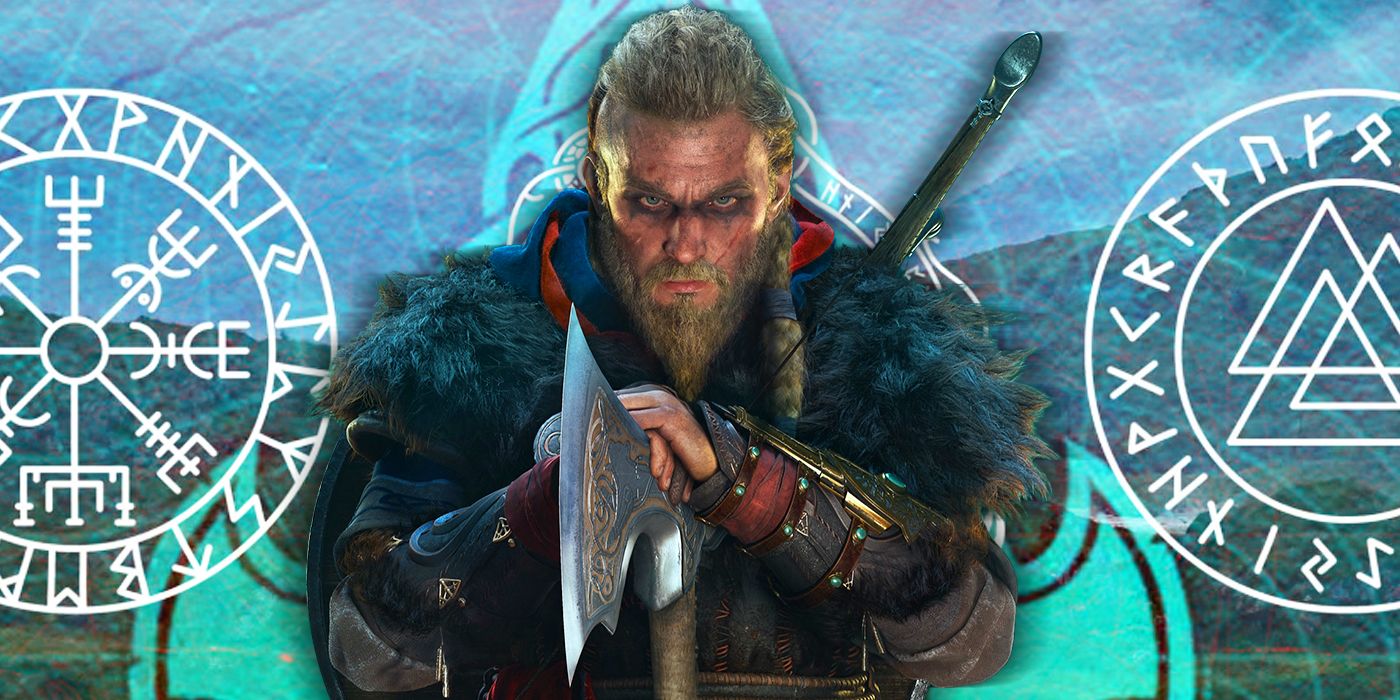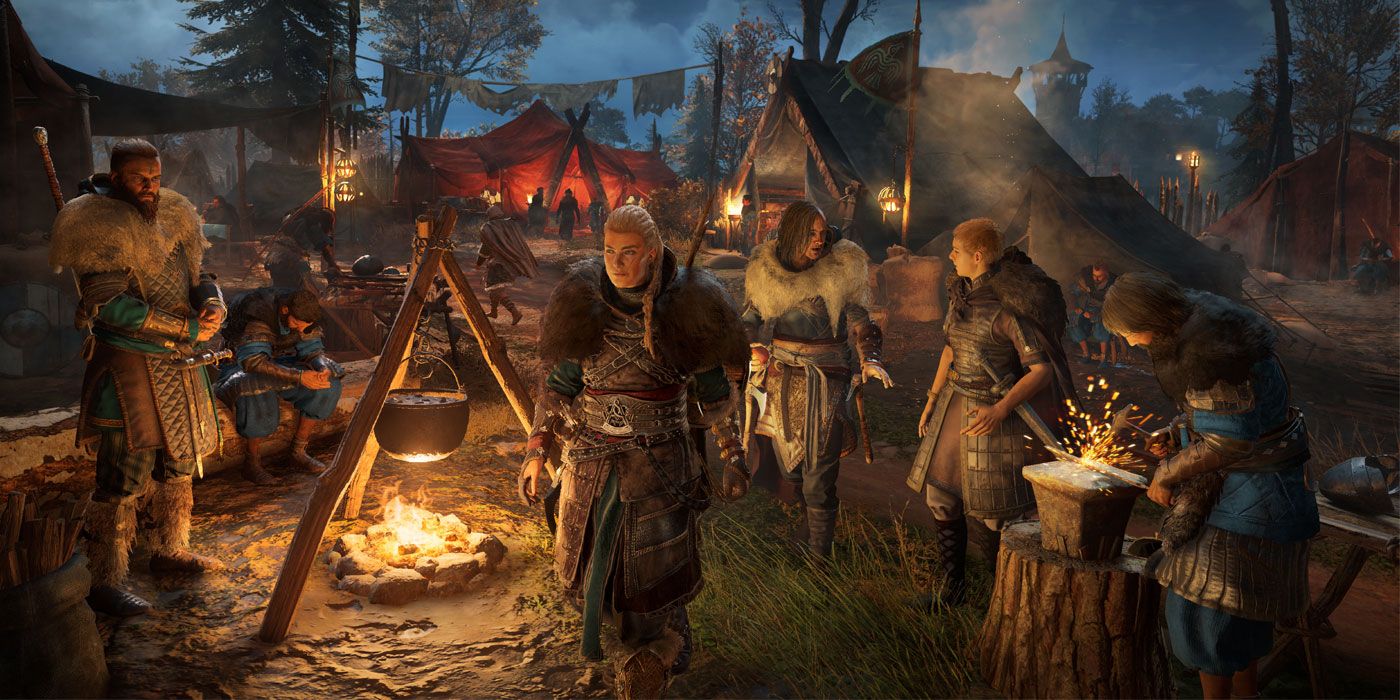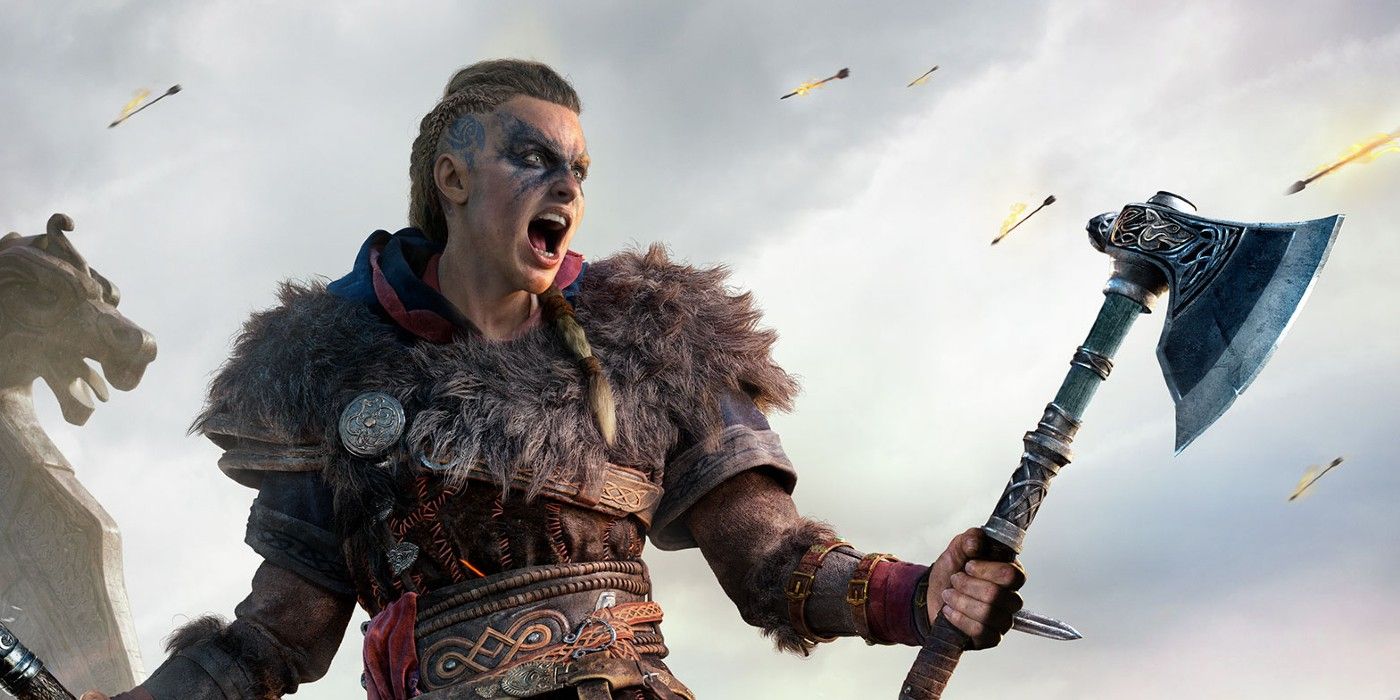Nazis have a long history of appropriating viking imagery and symbols. Unfortunately, Ubisoft's Assassin's Creed Valhalla is not immune to this trend -- but the game does take steps to prevent hate groups from using its imagery for evil.
Assassin's Creed Valhalla consciously works to undermine white nationalist beliefs, but any media based on the vikings is at risk of becoming popular among racists -- something which Ubisoft cannot control. However, part of combating the spread of white supremacy is identifying how bad faith actors operate.
Assassin's Creed Valhalla follows its protagonist, Eivor, through the viking invasion of England. Eivor is recruited to join the Hidden Ones (the predecessors of the historical Assassins) by two members of the order whom Eivor's brother, Sigurd, met in Miklagard (Constantinople). As the Norse armies invade one English kingdom after another, the Hidden Ones work to stop their enemies, the Order of the Ancients.
Nothing about this premise lends itself toward bigotry. Unfortunately, gamer culture has plenty of toxic elements. Probably the most visible backlash came from chauvinists expressing their outrage that the game's protagonist could be played as a woman. A different but related response appeared in the forums for a neo-nazi website, in a thread celebrating the release of Assassin's Creed Valhalla. This is noteworthy since white nationalists actively use video games to recruit new members.
Breitbart founder Steve Bannon hired Milo Yiannopoulos to reach out to white male gamers and "activate that army" as part of a recruitment method for expanding the alt-right. Nordic symbolism and history are invoked as part of this recruitment. The Christchurch shooter plugged video game YouTuber PewDiePie before livestreaming his terrorist attack, while alt-right online conspiracies helped provoke the storming of the US Capitol Building where "QAnon shaman" Jake Angeli's bare chest exposed tattoos appropriated from Norse culture to signify his racist beliefs.
Assassin's Creed Valhalla takes inspiration from surviving Viking-Age art and incorporates these designs into ships, weapons, buildings and clothing. While some creative license is taken, the textile and ship designs are far more period-accurate than almost any other game. Religious symbols appear with historical fidelity, while runes emphasize various game mechanics.
Notably, players can tattoo their characters using rune-staves and art that seems to align with descriptions of viking tattoos chronicled by the traveler Ibn Fadlan. Tattoo designs popular among Nazis are not options (and actual vikings had no conception of race, which is a modern construct).
The game also uses character designs to incorporate history that will make bigots uncomfortable. The embrace of strong female characters (including the protagonist) rejects "traditional" gender roles by acknowledging the historicity of shieldmaidens, mentioned in both sagas and Byzantine chronicles, and backed up by grave finds. Viking trade routes took them through numerous cultures, encountering the Jewish Khazars, Turkic peoples like the Pechenegs, North Africans and the Abbasid Caliphate during the Islamic Golden Age.
Basim and Hytham, two Hidden Ones, are Abbasids who Sigurd met in Constantinople. Viking-Age England was not especially diverse, but two merchants -- Reda and Yanli -- are from China and Egypt, presumably having traveled the Silk Road. The game also allows for same-sex relationships (something which scholars debate, as most sources that survived Christianization reflect medieval Christian attitudes toward sex).
Ubisoft has been the subject of several major controversies in recent years, including likening Black Lives Matter to terrorists in mobile game Tom Clancy's Elite Squad. Additionally, Assassin's Creed's focus on genetic legacies plays into an unfortunate overemphasis on the importance of heritage. It is also problematic that recent games turned the Assassins -- a group of Iranian Ismaili Muslims -- into a fantasy organization divorced from its cultural roots. However, Ubisoft has actively worked to make Assassin's Creed Valhalla a product that white supremacists will have a hard time clinging to, which is ultimately a good thing.



